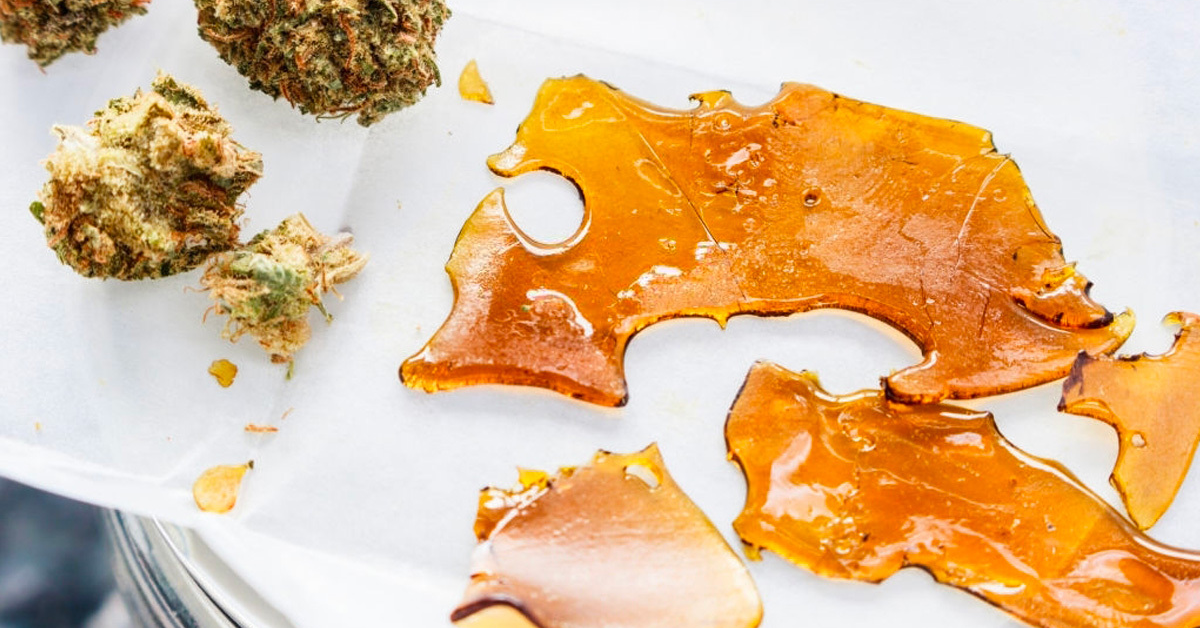Pontiac Residents to Decide on Key Marijuana Business Ordinance Amendments

Pontiac, Michigan, is set to present a ballot proposal to its voters, aimed at amending the city's existing regulations on adult-use marijuana businesses. This move reflects a broader trend in Michigan, where the legal landscape around marijuana continues to evolve.
The proposed amendments, listed under Pontiac Proposal 1, Ordinance No. 2424, are comprehensive and detailed. They focus on various aspects of the Adult-Use Marihuana Business Ordinance, including:
-
Revised Definitions: The proposal seeks to update definitions for key terms such as "Applicant," "Person," "Social Equity-Qualified Business," and "Stakeholder." These changes aim to clarify who qualifies as an applicant, incorporating partnerships and limited liability partnerships, and expanding the definition of stakeholders to include any business entity owners with an indirect or direct ownership interest greater than 6%.
-
Enhanced Disclosure Requirements: The amendments propose more stringent disclosure requirements for applicants. This includes revealing the ownership structure of the applicant entity and identifying every individual or entity with more than a 2.5% ownership interest.
-
Background Checks and Age Verification: There are provisions for comprehensive criminal history background checks, including for managerial employees and others involved in the management of the applicant. Additionally, applicants and stakeholders must affirm they are at least 21 years of age.
-
Operational and Permitting Process Changes: The proposal suggests modifications to the marijuana business permit application process. This includes changes to the timeline for obtaining permits, setting application windows, and requirements for community engagement plans.
-
Scoring System for Permit Applications: A significant change is proposed in the scoring system used to evaluate permit applications, particularly for those with existing medical marijuana provisioning center permits. This includes the allocation of points for applicants and the conditions under which these points apply.
-
Zoning and Location Restrictions: The proposed ordinance addresses the number of conditional permits available in various zoning districts for different types of marijuana businesses, including retailers and microbusinesses.
-
Transfer of Location and Ownership Rules: Amendments also include provisions allowing the transfer of locations for conditionally approved medical marijuana permit holders to apply for adult-use permits in different zoning districts.
For Pontiac residents interested in the full details of Ordinance No. 2424, the document is available for review at the City Clerk's Office during regular business hours. Additionally, Pontiac is not the only community facing marijuana-related ballot proposals, with several other communities in the region also presenting their own amendments. More information on these and other election-related details can be found on the Oakland County Clerk's website.
Dual Marijuana Facility Break-ins in Van Buren County Prompt Sheriff's Investigation

Early on Monday, January 8, two marijuana facilities in Van Buren County were the targets of break-ins, prompting an investigation by local law enforcement. The incidents occurred in quick succession, with the first report coming at approximately 3:19 a.m. at Higher Breed, located at 77 E. Main Street in Columbia Township. The response from Van Buren County sheriff's deputies was swift, arriving at the scene within ten minutes. They discovered that, thanks to effective interior security measures, the burglars were unable to access rooms containing marijuana products, and consequently, nothing was stolen from Higher Breed.
Almost concurrently, at around 3:39 a.m., a break-in occurred at Canna 43, situated on County Road 653 in Almena Township. Here, the scenario was different. Three individuals successfully entered the building and managed to escape with an undisclosed quantity of marijuana products before the arrival of the police.
The sheriff's deputies, based on the preliminary evidence, suspect that the same trio was involved in both break-ins. The suspects were described as wearing hoodies, hats, gloves, and masks, concealing their identities effectively. Their vehicle was identified as a black, late-model Jeep Compass with a Michigan license plate that could not be discerned.

The Michigan State Police are assisting the Van Buren County Sheriff's Office in this ongoing investigation. The authorities have urged anyone with relevant information to come forward and assist in the apprehension of the suspects. Members of the public can contact the investigators at 269-657-3101, Crime Stoppers at 800-342-7867, or Silent Observer at 269-343-2100. Additionally, anonymous crime tips can be sent to the Van Buren County Sheriff's Office via text message. To do this, text "CRIMES" (274637) with the keyword VBCTIP from a mobile phone.
Negaunee City Council to Decide on Zoning for Marijuana Businesses

In a significant development for Negaunee's marijuana policy, the city's future regarding the presence of medical and recreational marijuana businesses is now in the hands of the Negaunee City Council. This follows a recent decision by the Negaunee Planning Commission, which approved a recommendation for an ordinance to permit such establishments, albeit with specific zoning restrictions.
The proposed ordinance, as endorsed by the Planning Commission, confines recreational and medical marijuana establishments to industrial zones only. David Nelson, Negaunee's Planning and Zoning Administrator, outlined the limited areas where these establishments could operate. He mentioned locations such as the Tracey Mine, Kallioinen scrapyard, areas adjacent to the wastewater treatment facility, and a city-owned industrial parcel near the cemetery.
Under the ordinance, marijuana businesses must adhere to strict location criteria. They are required to be situated at least 250 feet away from parcels zoned for single-family residential use. Moreover, the ordinance stipulates that no marijuana establishment can operate within 1,000 feet of any school.
Should the city council give the green light to this ordinance, applications for marijuana establishments will be accepted starting January 1st, as per the ordinance's language. Prospective operators must first acquire a special land use permit from the planning commission.
The ordinance also includes provisions for a selection process by the city in scenarios where multiple applications are submitted for permits to operate as either a micro-business or a provisioning center. According to the ordinance, a micro-business is defined as an entity licensed to cultivate no more than 150 marijuana plants, process and package marijuana, and sell or transfer it to individuals over 21 years old or to a marijuana safety compliance facility. However, they are not permitted to sell to other marijuana establishments.
The 2016 Michigan Marijuana Legalization and Regulation Initiative defines a provisioning center as a commercial entity that buys marijuana from growers or processors and then sells or supplies it to registered qualifying patients or their caregivers.
Regarding licensing, the ordinance caps the number of licenses for micro-businesses and provisioning centers based on the city's population. The formula allows one license for every 2,500 residents, with a scaling system for larger populations. As of 2018, Negaunee's population stood at 4,547, as reported by the U.S. Census.
For other types of marijuana businesses, such as growers, transporters, processing facilities, and safety compliance facilities, there is no population-based restriction on the number of licenses issued.
Sixth Circuit Denies Local Roots' Bid to Challenge Perry Dispensary Settlement

In a recent ruling by the Sixth Circuit, Local Roots, a cannabis company, was denied the opportunity to challenge a settlement between the City of Perry, Michigan, and its competitor, Liberty Wellness. This decision upholds the allowance of more than one dispensary in Perry, a point of contention for Local Roots.
The case unfolded as Local Roots, which had secured a conditional marijuana retailer license in late 2022 under the assumption of being Perry's sole dispensary, attempted to intervene in a lawsuit filed by Liberty Wellness against the city. Liberty Wellness's owner, Jonathan Moses, had sued the city in October 2022, arguing that the city's decision to issue only one license was against the voters' preference for eight licenses. Despite Local Roots filing a motion to intervene, the trial judge concluded the case with prejudice before addressing their motion.
During oral arguments in October, the skepticism of the circuit judges towards Local Roots' position was evident. U.S. Circuit Judge John B. Nalbandian, who later authored the panel's opinion, remarked on the unusual nature of Local Roots' attempt to keep the lawsuit active despite both primary parties seeking its conclusion.
The Sixth Circuit panel supported the lower court's decision to endorse the settlement between Liberty Wellness and the City of Perry, effectively dismissing the action with prejudice. This meant Local Roots could not pursue claims within this lawsuit to maintain its status as the only cannabis retailer in Perry.
The panel further clarified that Local Roots' motion to intervene was moot due to the immediate agreement between Liberty Wellness and the city to dismiss the case, leaving no room for intervention. Additionally, the panel noted that all parties in a litigation must typically agree to a settlement before dismissal, but this doesn't apply until a motion to intervene is granted, which in this case, it wasn't.
Cloud Cannabis Joins Forces with Stash Ventures in Recent Takeover

In a significant development in the cannabis industry, Stash Ventures, known for its notable brands including Timber Cannabis Co., High Minded, and High Minded Creations, has finalized the acquisition of Cloud Cannabis. This strategic move, to be completed on January 23rd, marks a major expansion for Stash Ventures in the cannabis market.
Under the terms of the acquisition, Cloud Cannabis will continue to operate under its current brand name. This decision ensures that the established market presence and consumer loyalty towards Cloud Cannabis remain intact, while Stash Ventures broadens its reach and strengthens its portfolio in the cannabis sector.
Stash Ventures' acquisition of Cloud Cannabis represents a pivotal step in their business strategy. By retaining the Cloud Cannabis brand, Stash Ventures acknowledges the value and recognition Cloud Cannabis has built with its customer base. This approach allows for a seamless transition and continuity in customer experience, which is crucial in the competitive cannabis market.
The acquisition is a clear indicator of the dynamic nature of the cannabis industry, where consolidation and strategic partnerships are becoming increasingly common. For Stash Ventures, owning Cloud Cannabis and its licenses provides an opportunity to diversify their offerings and reinforce their position in the market.
As the cannabis industry continues to evolve, moves like this acquisition by Stash Ventures are expected to shape the future landscape of the market. Both companies bring unique strengths to the table, and their combined resources and expertise are poised to create a formidable presence in the cannabis sector.
The Balancing Act of Pricing and Production in Michigan's Rosin Industry

In the evolving landscape of Michigan's cannabis industry, a specific segment, the rosin market, is experiencing significant economic challenges. Rosin, a popular cannabis concentrate known for its purity and potency, is currently caught in a precarious financial situation. This is largely due to the discrepancy between production costs and retail pricing.
On the producer side, the situation is becoming increasingly untenable. The current market rate for rosin sold from producers to retailers is often lower than the production costs. Despite this, retailers continue to charge consumers standard prices, frequently marking up the product by 3 to 4 times its wholesale cost.
This issue seems to permeate all levels of the market, including both the caregiver (CG) market and top-tier licensed producers. While some companies and CGs have been thriving, charging over $50 per gram, there's a growing concern about market sustainability. The introduction of new players every few weeks suggests an impending saturation point.
A critical threshold appears to be at the $40 retail price for a single gram of rosin. When prices drop to this level, it indicates that producers are operating on minimal profit margins or potentially incurring losses. For instance, a wet pound of cannabis, roughly 2,250 grams, might yield about 67 grams of rosin at a 3% conversion rate. This amount, costing around $600 to produce, would only generate $1,340 at a sale price of $20 per gram. After deducting the initial material expense, producers are left with a narrow margin before accounting for labor, testing, packaging, and transportation costs.
For the rosin market to remain viable, several changes are essential. Producers must adapt to survive on a 15-20% margin and focus on strains that yield higher rosin percentages, albeit often with less desirable terpenes. Consumers would need to accept paying higher prices, around $50-$60 per gram. Retail shops, currently operating on 2-5x markups, would also need to adjust their pricing strategies, although this remains unlikely.
Producers are finding this situation increasingly discouraging, especially in Michigan. The imbalance where retailers profit significantly more than the producers is not a new phenomenon in the cannabis industry, but it has become more pronounced recently. Vertical integration, where companies control multiple stages of the production and distribution process, can mitigate some of these challenges, but tax liabilities remain a significant burden.
Despite these challenges, there will always be a market for innovative and high-quality products. Even well-established legacy CG brands are adjusting their prices to stay competitive. Smaller producers with strong brand recognition, like 710 Labs, can command higher prices than larger producers, regardless of quality, due to lower overhead costs.
The current dynamics in Michigan's rosin market reflect broader trends in the cannabis industry, highlighting the need for balance between production costs, retail pricing, and consumer expectations.


 Helpful Links
Helpful Links